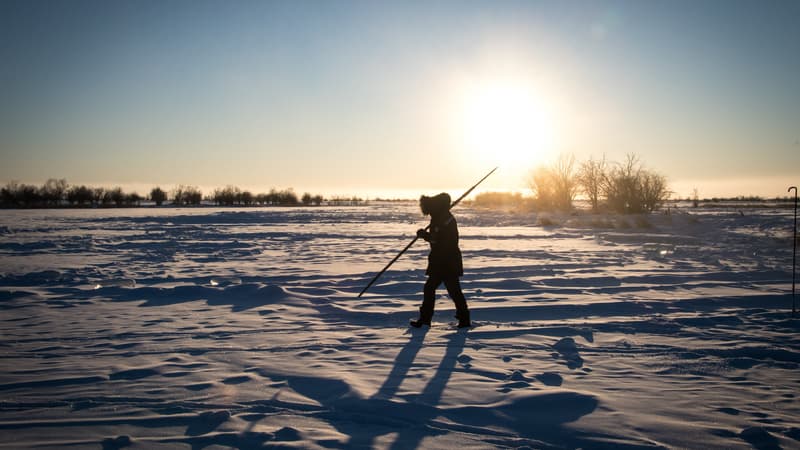The effects of global warming are accumulating. In addition to rising water levels, the multiplication of forest fires or the interruption of agricultural production, you risk causing the release of the “zombie virus”. This is the conclusion of a previously published study (which is therefore not yet peer-reviewed) on November 10.
Led by CNRS microbiologist Jean-Marie Alempic, a team of scientists studied 13 viruses found in the Siberian permafrost. According to the study, “a quarter of the northern hemisphere is covered in permanently frozen ground”: this frozen ground is called permafrost, or permafrost. For example, it covers much of Canada, Siberia, and Alaska.
The risk of an unknown virus
Scientists have discovered that at least one remains infectious even after spending 48,500 years in gel. However, global warming is causing permafrost to thaw, and the latter has already started, according to the UN. Therefore, the thaw could trigger the release of viruses that are still infectious.
“Fortunately, we can reasonably expect that an epidemic caused by a reactivated prehistoric pathogenic bacterium can be rapidly brought under control with the modern antibiotics at our disposal,” the study authors write.
But “the situation would be much more disastrous in the case of plant, animal or human diseases caused by the resurgence of an unknown ancient virus,” they add.
A “public health threat”
The study underscores that it remains impossible to estimate how long these viruses might remain infectious “once exposed to external conditions (ultraviolet light, oxygen, heat)” and how likely it would be “that they would find and infect an appropriate host in the meantime.” .
The scientists warn, however, that “the risk can only increase in the context of global warming, as the thawing of the permafrost will continue to accelerate and more and more people will populate the Arctic as a result of industrial enterprises.”
They consider, therefore, that it would be a mistake to think that “zombie viruses” do not constitute a “threat to public health”.
Source: BFM TV


